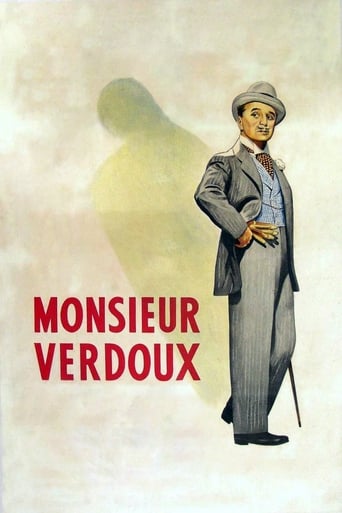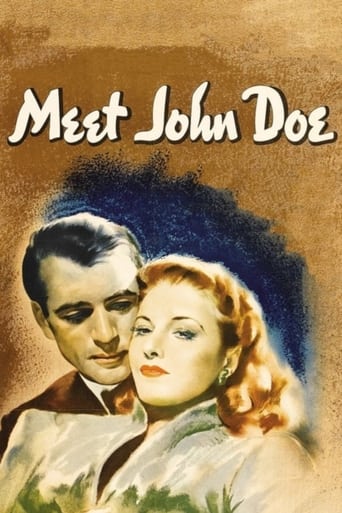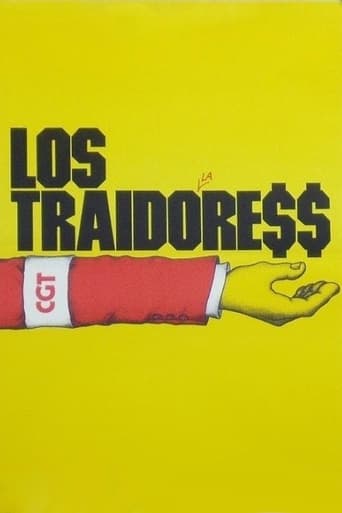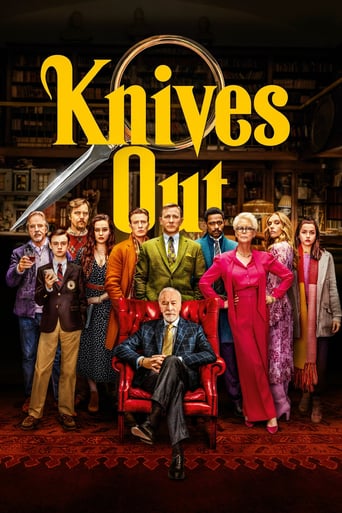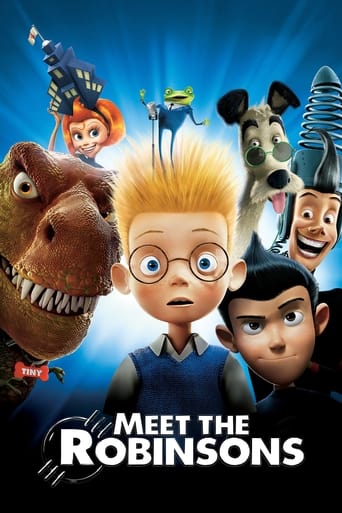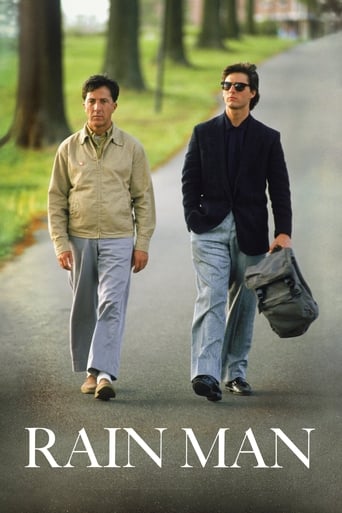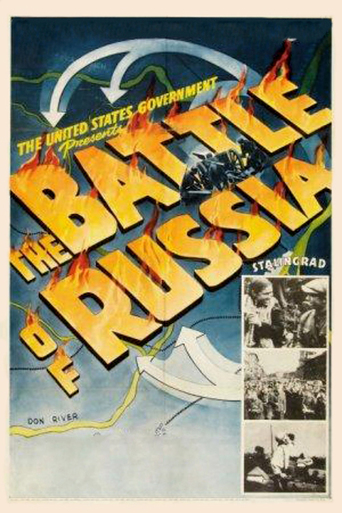


Why We Fight: The Battle of Russia
The fifth film of Frank Capra's Why We Fight propaganda film series, revealing the nature and process of the fight between the Soviet Union and Germany in the Second World War.
-
- Cast:
- Anthony Veiller , Nikolai Cherkasov


Similar titles
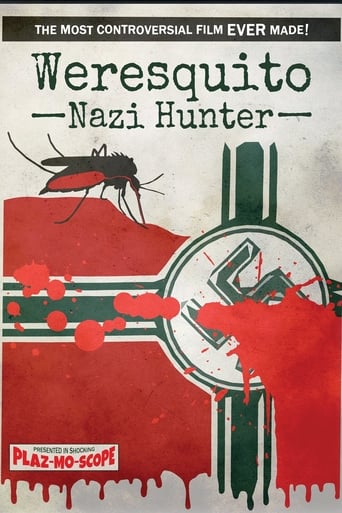
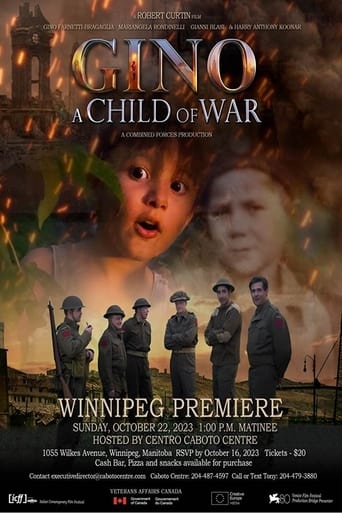
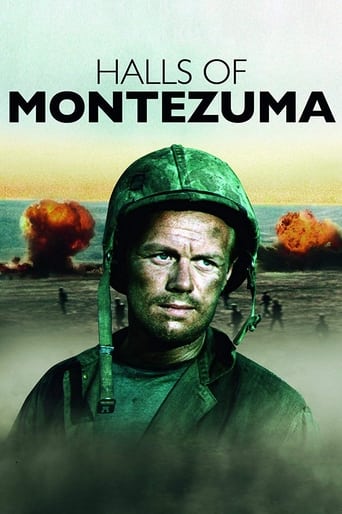
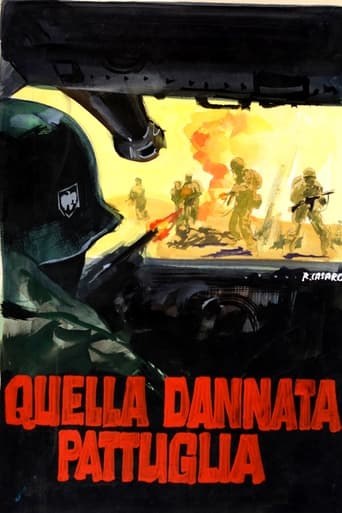
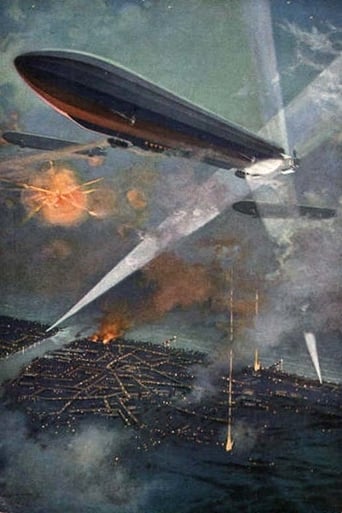
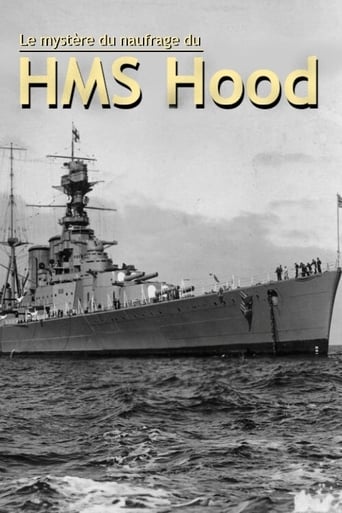
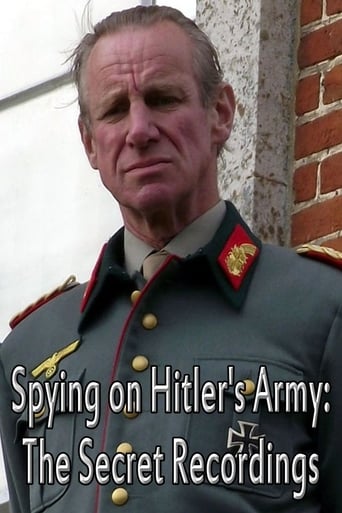
Reviews
Strong and Moving!
It is an exhilarating, distressing, funny and profound film, with one of the more memorable film scores in years,
Great story, amazing characters, superb action, enthralling cinematography. Yes, this is something I am glad I spent money on.
A terrific literary drama and character piece that shows how the process of creating art can be seen differently by those doing it and those looking at it from the outside.
Part of Frank Capra's "Why We Fight" series of documentary/propaganda films, this film details Russia' involvement in WW2. We see Russia's geography, industry, people, history of repelling invaders and WW2 history. One of the most bizarre propaganda films you'll ever see: an American film praising Russia. Yes, the US and Russia were allies at the time but the relationship was never that friendly or admiration-filled. Stalin's regime was as reprehensible as Hitler's and the US largely knew this. However, common enemies breed strange bedfellows and Russia with the US (and Britain) would be one of the strangest.It is well made though. Good use of historic war footage plus dramatizations together with great editing make for a seamless feel to the film. Narration is of the propaganda variety, though you can imagine the narrator having to grit his teeth through some of the pro-Russian bs. As far as historic accuracy goes, well it is a propaganda film: Russia is made out to be a benevolent democracy (almost) and Stalin a great, friendly leader (rather than a genocidal tyrant). No mention of Russia involvement in the invasion of Poland and their lack of preparation for Germany's invasion is painted as a planned strategy and masterstroke - defence in depth. The broader events are reasonably accurately reported. Most importantly, the quality that did the most to help Russia win on the Eastern Front is captured - the perseverance and tenacity of the Russian people and their undying resolve to rid themselves of the invader.
This is the fifth of seven films in the "Why We Fight" series that was directed by Frank Capra. These pictures are documentaries as well as propaganda...with a strong emphasis on propaganda in order to bolster support for the war effort. Of the seven films, perhaps "The Battle of Russia" is the one which emphases propaganda much more than facts. Using selective information, the film makes a strong message--our friends, the Russians, are plucky and will NOT roll over for the invading Germans...and they need our help. To make message, the film strongly emphasizes some facts while ignoring the many bad things about Stalinist Russia...such as repression, the Russia-Germany non-aggression pact and Stalin himself. This isn't too surprising, as Hollywood did an about face with Russia during the war. While pre- war films, such as "Comrad X", made fun of the Soviets and mocked their system, now that they were allies in the war, a new and ridiculously idealistic view of the USSR made its way into movies such as "The North Star". After all...they were now the American's new strange bedfellow. And, it's because of the combinations of truths and many half truths and omissions that the film is only fair despite its strong message.
In June 1941 Nazi Germany invaded the Soviet Union . Less than four years later the outcome was 35 million dead human beings , Nazi German defeat and a " cold war " that lasted 45 years with the threat of humanity destroying itself in nuclear conflict . One of the characteristics of the cold war was both the Soviets and Americans trying to paint themselves whiter than whiter and the other side blacker than black . America being a democracy and with a free press found the task slightly more difficult but let us not forget the McCarthy witch hunts of the 1950s and of popular fiction of the period when every science fiction film with an alien invasion was spearheaded from Mars the red planet because ... well reds are commies are they not ? Bearing this in mind perhaps the most successful propaganda to come out of America was when the Soviets were our friends in the battle against Nazism and this propaganda piece is propaganda at its most enthralling One massive irritating thing about this documentary is in the use of the word that appears in the title - Russia . It's used euphemistically . Being a Scot someone uses the word " England " or " English " when the word " Britain " or " British " is meant even very mild mannered Celts with no real nationalist instinct get very angry at this lazy mistake and one feels great pity for the 193 million citizens featured in this tribute constantly being referred to as Russians when in fact they're Soviets Facts are ignored to a large degree because this is a propaganda film though be it a superlative one . The Nazi strategy of Blitzkrieg is referred to as defeating Poland in 18 days . Not inaccurate though it does miss out the important point that after 18 days the Soviet Union then invaded the Polish eastern border and imposed a reign of terror on the Poles living there . When the Nazi invasion of the Soviet Union is underway it over states the capacity of the Germans who were reliant upon the horse and cart rather being an entirely motorised and mechanical force as is insinuated here . The Soviet defence in depth is not nearly as effective as painted and the German slowed down due to logistical problems and the onset of the Russian Winter , the Soviet " not one step back " mindset was often down to commissars and NKVD special squads enforcing Stalin's orders in the first six months of the war rather than the average Red Army soldier's fighting spirit and religion was only legalised because of the War . Part one of the film ends with the Russians being described as " Free and united people " which is not the case since communism isn't a democratic ideal centered around freedom and more than a few Soviet citizens most notably in the Baltic states and the Ukraine sided with the Nazis But where propaganda works best is in emotion combined with an element of truth and the truth is the Nazis butchered millions of Soviets simply because being of Slavonic ethnicity they were considered " untermenschen " by the Nazi regime and this film pulls no punches on the atrocities forced upon the Soviets . We see the bodies of dead children who were burned alive by the Nazis and of young women who have suffered rape at the hands of the Nazis who not only ignored the Geneva convention but ironically their own Nuremberg laws involving race mixing . This film will have you weeping tears for Soviet suffering and have you cheering as they take the fight to the fascist hordes in what is one of the best propaganda pieces you will ever see . So much so that that if it wasn't some of the airbrushing of history as I mentioned earlier such as the Soviets attitude of Poland I would have no hesitation in saying it's one of the greatest documentaries ever made on the Second World War and shows the Soviet blood sacrifice as being the main reason for the defeat of Hitler's regime
There has been a political documentary, of recent vintage, called Why We Fight, which tries to examine the infamous Military Industrial Complex and its grip on this nation. It is considered both polemical and incisive in making its case against both that complex and the war fiasco we are currently involved in in Iraq. Yet, a far more famous series of films, with the same name, was made during World War Two, by Hollywood director Frank Capra. Although considered documentaries, and having won Oscars in that category, this series of seven films is really and truly mere agitprop, more in the vein of Leni Reifenstal's Triumph Of The Will, scenes of which Capra recycles for his own purposes. That said, that fact does not mean it does not have vital information that subsequent generations of World War Two documentaries (such as the BBC's lauded The World At War) lacked, nor does that mean that its value as a primary source is any the less valuable. They are skillfully made, and after recently purchasing some used DVDs at a discount store, I found myself with the opportunity to select a free DVD with my purchase. I chose Goodtimes DVD's four DVD collection of the series.Rarely has something free been so worth invaluable. While there are no extras on the DVDs, and the sound quality of the prints varies, these films provide insight into the minds of Americans two thirds of a century ago, when racism was overt (as in many of the classic Warner Brothers pro-war cartoons of the era), and there was nothing wrong with blatant distortion of facts. The seven films, produced between 1942 and 1945, are Prelude To War, The Nazis Strike, Divide And Conquer, The Battle Of Britain, The Battle Of Russia, The Battle Of China, and War Comes To America.Overall, the film series is well worth watching, not only for the obvious reasons, but for the subtle things it reveals, such as the use of the plural for terms like X millions when referring to dollars, rather than the modern singular, or the most overused graphic in the whole series- a Japanese sword piercing the center of Manchuria. Yet, it also shows the complexities of trying to apply past standards to current wars. The lesson of World War One (avoid foreign entanglements) was not applicable to World War Two, whose own lesson (act early against dictatorships) has not been applicable in the three major wars America has fought since: Korea, Vietnam, nor Iraq. The fact that much of this series teeters on the uncertainties of the times it was made in only underscores its historic value in today's information-clogged times. It may not help you sort out the truth from the lies and propaganda of today, but at least you'll realize you are not the first to be in such a tenuous position, nor will you be the last.

